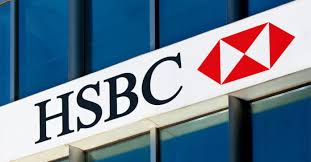
The major British bank HSBC $HSBA (-4,27 %) wants to delist its subsidiary, Hang Seng Bank $11completely from the stock exchange and has presented investors with an offer that has them rejoicing. The shares of the long-established Hang Seng Bank shot up by almost 30 percent at times on Thursday. In the early hours of Thursday afternoon local time, the shares were still up more than 26 percent on the Hong Kong stock exchange.
The deal values the bank at more than 290 billion Hong Kong dollars (equivalent to over 37 billion US dollars). HSBC, Europe's largest lender, is offering minority shareholders 155 Hong Kong dollars per share. This corresponds to a premium of around 33 percent on the 30-day average price of 116.5 Hong Kong dollars. As HSBC already holds 63 percent of the shares, the transaction volume amounts to around 106 billion Hong Kong dollars, according to the US news channel CNBC.
For HSBC itself, however, the announcement meant headwinds: its own shares lost over 6.5 percent in Hong Kong. Group CEO Georges Elhedery nevertheless spoke of a "great opportunity" to build on the strengths of both brands. Hang Seng Bank is to retain its independence, its name and its customer business, while at the same time being able to invest more in technology and product development.
The project is also seen as a signal of Hong Kong's importance in the global financial system. HSBC emphasized that the city remains the most important link between international markets and China. Industry observers also see the move as a long overdue solution, as the dual listing of parent and subsidiary companies has repeatedly raised governance issues.
However, Hang Seng Bank is struggling with problems. Due to the weakness in Hong Kong's and China's real estate sector, the proportion of non-performing loans has recently risen to 6.69 percent - a significant increase from 5.32 percent a year ago. Nevertheless, the acquisition remains a strategic step for HSBC to strengthen its presence in the core Hong Kong market and further reduce its dependence on Western markets.




